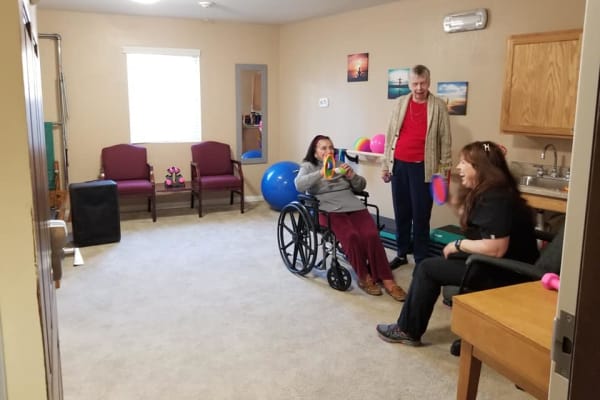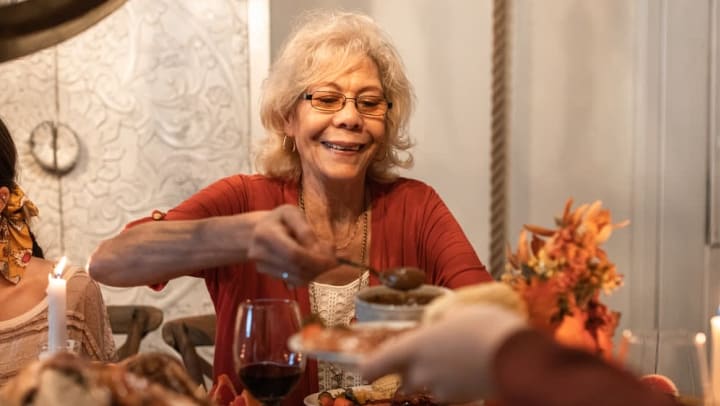How to Stimulate Appetite For Elderly
It is a simple, almost universal fact: As people age their appetite tends to decrease, and with that, their weight tends to decrease as well. There are many different reasons why a senior’s appetite would decrease such as lack of exercise, inability to prepare meals themselves, difficulty chewing or swallowing, and even depression or loneliness. With sudden change in appetite a call to a physician should occur to rule out any serious health conditions or medication side effects. In this article we will concentrate on how to stimulate the appetite for a senior and get them the nutritional benefits that they need to be healthy.
What Causes Loss of Appetite in Seniors?
Of the many causes of loss of appetite for seniors, a slower metabolism is by far the most common. As a senior ages, they typically become less active. As a senior becomes less active their bodies need less and less fuel to create the energy for that activity. Their metabolism naturally slows and they begin to eat less. Sometimes it is the process of eating that hurts the appetite. Ill fitting dentures or dental issues can make chewing and eating very painful, and can lead to a senior to eat less. Other times, it could be a psychological reason that decreases their appetite. Depression and Dementia are known to change a senior’s desire to eat, as eating a lone can amplify a feeling of loneliness, or confusion about what the senior is eating or how to eat it can become frustrating.
-
Slower Metabolism
-
Changes to taste buds
-
Dental Issues
-
Lack of routine
-
Dry mouth (Medication Side Effect)
-
Depression
-
Dementia
Naturally Improving Appetite For Elderly
We believe that there are 8 different ways that you can naturally increase a senior’s appetite without drastically making lifestyle changes. These 8 suggestions can be implemented easily with small changes.
1. Create a Routine
Getting into a daily routine where meals and snacks are eaten around the same time every day can help their body feel ready to eat at those times. As we age we often lose the ability to tell when we are truly hungry, and this can lead to refusal of meals.
2. Make Meals Social
Nobody likes to eat alone. Eating with friends stimulates conversation and leads to people eating when they are caught up in the moment, and not thinking about what they are consuming. Some seniors may respond well to a nice setting and even music during meals. It can be lonely or depressing to eat alone all the time. At Lakeview Terrace our residents have the choice of who they sit with at any meal, so they can have as many different conversations as they like!
3. Smaller Portions
Seniors often may feel overwhelmed if they are served a large amount of food. Some have Depression era memories and are turned off by such large portions that they may feel are wasteful. Instead of a big plate, serve smaller portions on smaller plates that will look like a full portion. An alternative is to try switching to a daily routine where your older adult eats 5 small meals instead of 3 larger ones.
4. Smoothies & Shakes
A great way to load up on fruits and vitamins is to mix in healthy smoothies. Making a smoothie can be an event as you get to decide what ingredients you want to include, and the process of blending can make some fruits easier to eat (such as apples, pears, and peaches). Vegetable smoothies can be a great way to mix it up, and also increase the nutritional value.
5. Healthy Snacking
Between meal snacking is a great way to stimulate an appetite or even increase metabolism. Healthy snacks like hard boiled eggs, avocados, or mixed nuts can be served between meals and give the senior a boost of energy between meals. Make sure that these snacks are easy to eat to be sure that they are a positive addition to the day!
6. Finger Foods
Due to strokes, dementia, or other health conditions, manipulating a fork, spoon or knife can be difficult. Some seniors can find that difficulty frustrating and it may prevent them from wanting to eat as much or as often as is necessary to remain healthy. By mixing in more hand held or finger foods, a senior will more easily eat and is more likely to complete their meal.
7. Let Seniors Decide
Are you preparing food that you like or that your elderly loved one likes? Are you preparing food that is easy for you to make, or is it food that is easy for the senior to eat? Involving the senior in the decision making process on the menu can be both fun and informative, and not to mention can lead to great appetite for your loved one. Creating dishes that they grew up having can add discussion and nostalgia to any dining experience.
8. Exercise
Age, appetite, and exercise are tied closely together. Some exercises can help stimulate or increase appetite, while some others may actually suppress it. More aerobic, strenuous or fast paced workouts will tend to decrease an appetite. However, exercise such as walking can often lead to an increased appetite.
Appetite Stimulants for Seniors
If the 8 tips above are unsuccessful in stimulating appetite in your elderly loved one, you can consult a physician to make other recommendations. They may suggest or prescribe appetite stimulants to help with your nutritional concerns. Currently, there are no medications approved by the Food and Drug Administration (FDA) for appetite stimulation in older adults.
Final Thoughts
Poor appetite doesn’t always indicate a problem, but there are some significant effects of poor appetite and poor nutrition. Also, it’s normal for the appetite to change with age. By keeping an eye on dining habits and implementing the steps above, you can help create the healthiest environment possible for your loved ones. Incorporate the tips above and keep track of the result. Share the results with your senior and the physician when warranted.
Dining at our Ridgeline communities
Meal time at Ridgeline can be an important social experience during breakfast, lunch, or dinner, but it has important nutritional benefits as well. Our menus are created and reviewed by a dietitian and prepared lovingly by our amazing staff. We are able to incorporate different dietary requirements, and we can help monitor your loved ones’ overall nutritional health. If you feel like your loved one could benefit from such attention, please contact us as soon as possible and schedule a lunch. We’d be thrilled to have you.


